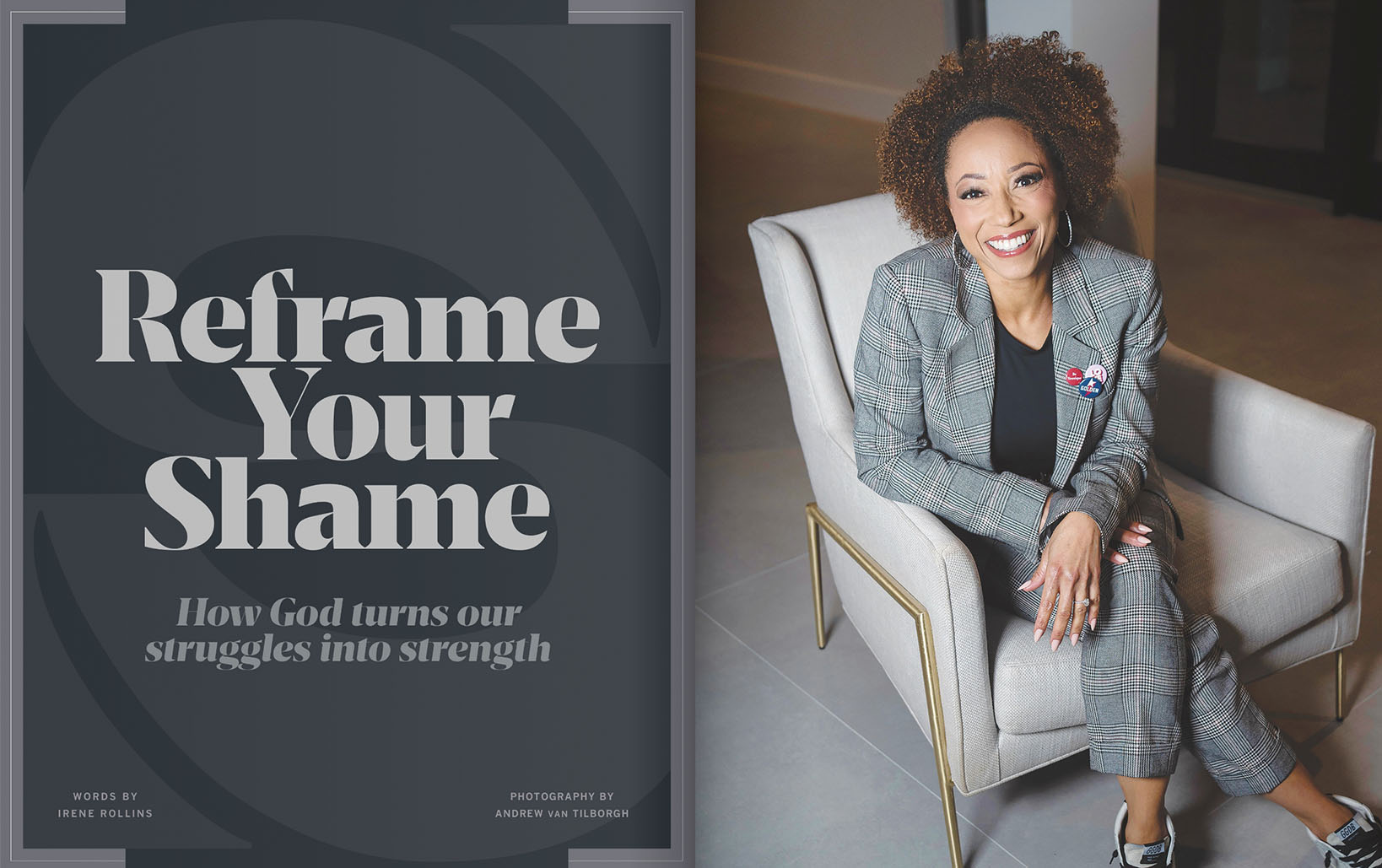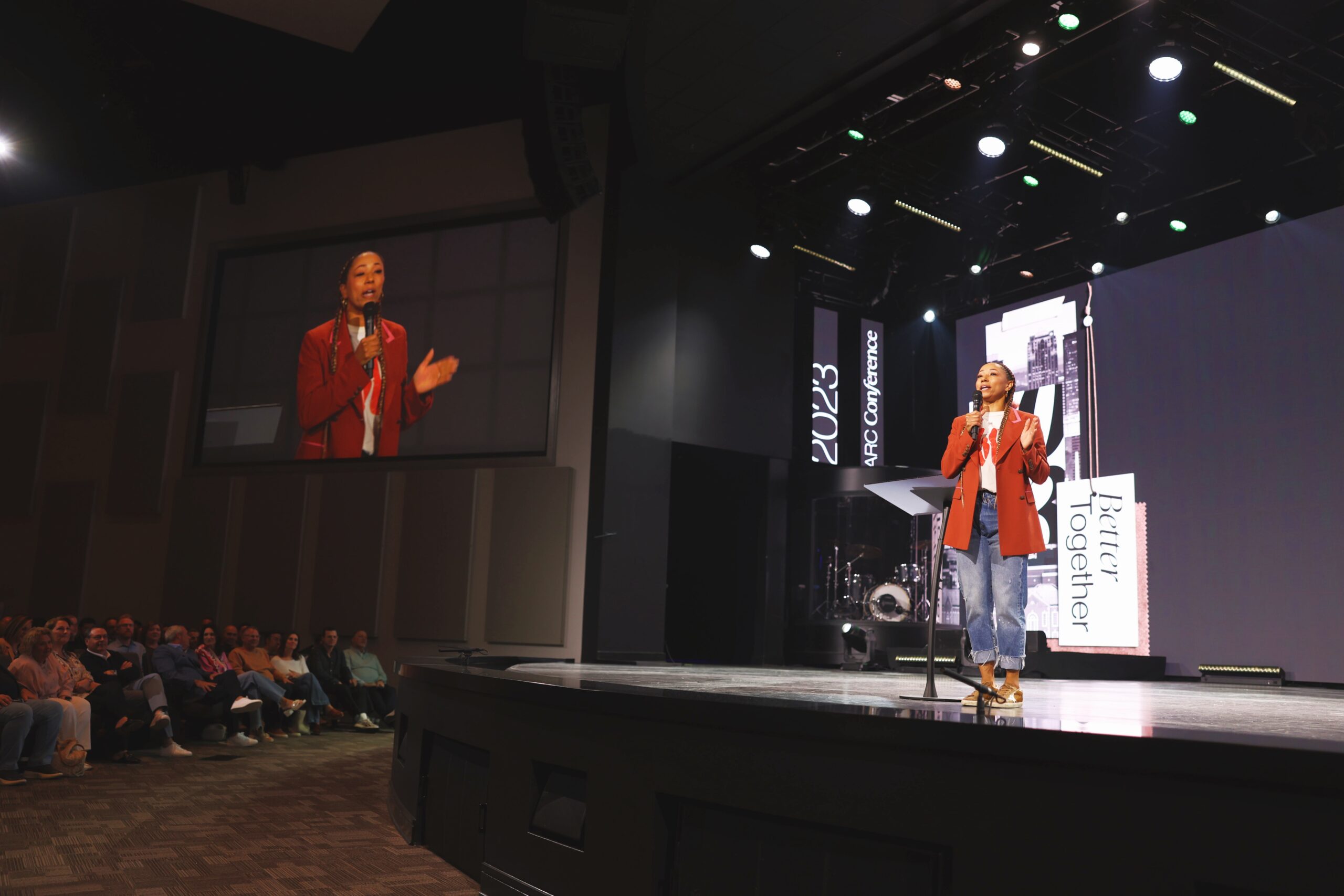
“Shame is like everything else; live with it for long enough, and it becomes part of the furniture.”
—Salman Rushdie
“Each time he said, ‘My grace is all you need. My power works best in weakness.’ So now I am glad to boast about my weaknesses, so that the power of Christ can work through me” (2 Corinthians 12:9, NLT).
Admitting our weaknesses is often a difficult task because calling our imperfections, failures, hang-ups and habits what they are is uncomfortable. It often produces shame. Shame is a powerful emotion; one that is inward and, when not dealt with appropriately, deadly to our self-esteem and connection with God and others.
As leaders, I have found that we have a tendency to hesitate to acknowledge our weaknesses and failures because we believe the lie that we have to have it all together and be strong for everyone else. Our congregations and churches are full of people suffering with mental health problems, emotional immaturity and issues, as well as addiction.
Why are we not talking about this more in the church? Current statistics say just over 50% of our congregations know someone or are themselves dealing with an addiction. Mental health is stigmatized in our homes, the church and our communities, yet statistics say one in five Americans is dealing with a mental health issue and/or are victims of sexual abuse.
Some studies are showing that over 60% of men watch porn regularly, and more and more women struggle with addiction to porn as well. Pastors and leaders struggle in these areas, too! After all, we are human.

Some share my open approach to dealing with addiction, but many more pretend it doesn’t exist. It is only a matter of time before the truth eventually comes out and leaves them, their families and communities to face the consequences of their undealt-with struggles, whether it is mental health, trauma, addiction, marital issues or something else.
These struggles, whether they are hidden or in public view, are still a real and dangerous threat to our communities and families. I am not saying everyone should air their dirty laundry, but what I am saying is we all have issues, and we all need help, healing and community. If we don’t deal with issues privately, they will eventually be dealt with publicly. Shame causes us to hide and isolate, which leads to further substance abuse or other addictive behaviors, and the cycle continues to become toxic and impacts our relationships, mental health, how we lead and so much more.
I know firsthand how shame can become toxic and debilitating. As a pastor, wife and mother, I struggled with the shame of a secret addiction to alcohol. Admitting my alcoholism was extremely difficult for me because acknowledging it felt like I was confirming the negative ways I thought about myself: I was bad for having this struggle, I was unforgivable and I was fundamentally flawed. But it wasn’t until I embraced my weakness of being powerless over alcohol that God began to turn it all around for my good and the good of others (see Romans 8:28).
I know many leaders who were already close to their tipping point prior to the COVID-19 pandemic and who now have found themselves completely overwhelmed, emotionally spent, burnt out and drowning in the pressures of leading their churches and using unhealthy coping mechanisms. They are living outside of their normal ability to tolerate stress, leading many to destructive behaviors and even suicide as they grapple desperately for ways to cope.
Additionally, many are like I was in early years of ministry. I didn’t know how to deal with the pain of betrayal, grief and loneliness that come with ministry, and I watched that burden absorb the joy I once felt fulfilling my calling. I don’t think I’m alone when I say that I struggled with overworking and pursuing perfection to prove my own success and worth … over time resentful in doing more for God than spending time with Him.
I remember crying out to God saying, “Oh God, take me back to the joy of my salvation!” My husband, Jimmy, and I felt alone and orphaned as we led our growing church and could not keep up with the pressures increasing as the church grew.
I cried out to God in my misery and thought to myself, How could I have let myself get to this dark place of depression, anxiety and perpetual exhaustion? It all felt unbearable, and I wondered if there was a way out for me and questioned if my marriage would ever recover. What if anyone found out how bad off we really were? I feared I would lose the people I loved and the church I worked so hard to serve and build.

Jimmy and I found ourselves hitting rock bottom three years into relaunching the church we took over from Jimmy’s parents. No one knew I was secretly struggling with an addiction
to alcohol, we were emotionally unhealthy, and we were on the verge of divorce. Reaching out for help to those to whom we were accountable subsequently led to rehab for myself, countless hours of counseling individually, as a family with our children and for our marriage. During our sabbatical from ministry, we privately worked on our issues, and guess what? The church grew without us. Imagine that!
I believe leaders often feel stopping or slowing down long enough to deal with our emotional/mental health, grief/loss, family crisis or even just to rest is an interruption or a waste of time. I have found through my own experience that when we deny the brokenness of our own humanity—and partner that with the dangerous lie that we are somehow supposed to be immune from struggles, dysfunction, hardship and addictions because we are in the public eye—we are prideful and headed toward danger.
Just because we are leaders and people look up to us, we believe the lie that mistakes mean the end for us. As if the Bible is not filled with people who made terrible choices and discovered a saving, redeeming, delivering God! People still need heroes in their lives who are not trying to be saviors but are able to set an example of how to walk in integrity, authenticity and vulnerability.
What if we create a culture where no perfect people are allowed in our church or organization, where we embrace our humanity rather than shaming people for being human and broken? Imagine if we normalized weakness and vulnerability, leaning into our pain, getting honest, talking about our shame and reaching out for help.
We all need a Savior to heal us, deliver us, forgive us and lavish His endless supply of mercies and grace upon us. We have the wonderful opportunity to teach people with whom we have influence that our failures don’t have to define us; rather, we are defined by what we do when we rise after we fall, and we can’t do this without the grace and mercy of God.
We can lead authentically and vulnerably, teaching our churches how to lean into our emotional health so we can be spiritually mature. They go hand in hand, and whether you are aware of this or not, acknowledge it as truth or not, it is real. We must realize for ourselves and teach others that the dark nights of our lives can produce great character. Testimonies and treasures can be found in our dark times. Isaiah 45:3 says, “I will give you hidden treasures, riches stored in secret places, so that you may know that I am the Lord, the God of Israel, who summons you by name.” But we must be willing to go first, if we want others to follow.
I realized the supernatural power of testimony, and how it gives hope to others, when I shared the story of my struggle with alcohol and my recovery at our church two years and three months into my sobriety. I honestly thought I would be stoned while on stage, just like in biblical times, but it was quite the opposite. Our church cried with us, identified with our pain, empathized with us and cheered us on.
Countless people began to reach out for resources and help in dealing with their wounds, to get help with struggling marriages and even seek treatment for addiction. Our church grew steadily after I shared my testimony, and shame was removed from the lens I saw the world through. As you read this, you may be thinking that sharing your story would be the end of you, or maybe that you are too far gone. I want to remind you that the gifts and calling are irrevocable (see Romans 11:29). God can turn it all around for good, if you are willing to surrender, get honest and reach out for help and do the hard work to get free.
Recovery applies to everyone because we all have struggles, dysfunction in our upbringing and stress that will continue to happen in our lives daily. It’s not just “those people” with issues who need to get well. We all have hurts, hang-ups and habits that threaten to destroy our lives, families, marriages and churches.
Trauma, and its impact on us as human beings, is real, but so
is resilience, my friend. We must get well so we can lead others well. We can’t be truly compassionate and empathetic leaders and shepherds when we are not willing to go into painful times of grief, self-examination and repentance to heal broken parts of our past, address areas of fracture and earthquake moments in our past that have shaped us into who we are today.
I implore you to seek emotional healing and pursue God to heal your own brokenness. You will not be disqualified by admitting your weaknesses; rather, you will be empowered by God’s grace and mercy to overcome what has held you back from being your best and healthy self for far too long. My prayer is that God would wake up your willingness to get well and open your eyes to potential blind spots holding you back from true freedom.
It is through recovery, therapy and accountable relationships
that we can offload the junk that has been weighing us down and show others how to get real and get free through the power of Jesus Christ. Healing must happen in us before we can be truly empathetic toward those we are called to serve and love like Jesus loves.
Jesus went hard on religious leaders who pretended to be perfect and demanded that others do the same. In Matthew 23:4 He said, “They crush people with unbearable religious demands and never lift a finger to ease the burden” (NLT), and in verse 25 He added, “What sorrow awaits you teachers of religious law and you Pharisees. Hypocrites! For you are so careful to clean the outside of the cup and the dish, but inside you are filthy—full of greed and self-indulgence!”
Perfection is a crushing demand, not just for you, but for the people in your life. It is not the way of Jesus, who invites all who are weary to come to Him and He will give us rest because His yoke is easy and His burden is light (Matthew 11:28, 30). Who told you that you had to keep up the appearance of having it all together, being perfect, that you aren’t supposed to have struggles?
Matthew 23:25 warns of the misery we will bring upon ourselves when we are so careful to keep up the facade that everything is shiny, clean, perfect and looking good in our lives while the truth is we are dying on the inside. Can you remember who you were before the world told you who you “should” be? Who are you outside of what you do for God? Do you realize God cares more about who you are than what you do for Him? Your heart and emotions matter to God. The health of your marriage and family matter to God.
In his book Emotionally Healthy Spirituality, Peter Scazzero writes, “Emotional health and spiritual maturity are inseparable. It is not possible to be spiritually mature while remaining emotionally immature.”
Pastors and clergy leaders, it really is OK not to be OK! People in our congregations, especially in the younger generations coming up behind us, long for transparency and vulnerability. Unattainable perfection is no longer an acceptable aspiration for young people.
I don’t know about you, but I am so over it! It is exhausting to rely more on myself than on the God I serve.
Paul, a man delivered from pride and self-righteousness, wrote honestly and hopefully about learning “not to rely on ourselves but on God, who raises the dead” (2 Corinthians 1:9, NLT). What if we began to take responsibility for our character flaws and to own our brokenness and resist shame over our need for recovery and healing? What if we looked at recovery not as a bad word but rather in terms of its definition: a return to a normal state of health, mind or strength. I believe this is a path toward freedom for us all.
As a senior pastor in my church for over 10 years, I know the weight you carry. I know the sacrifice this unique and holy calling costs you and your family. You are not alone. You do not have to be miserable doing what you love to do. You don’t have to be burnt out and hurting while you serve God. It’s time to shed some of that weight you are carrying.
Are you ready to dive deeper into being with God more than doing for Him? Are you open to change, taking time for rest and establishing healthy rhythms and boundaries for yourself, your marriage and your family? Are you ready to get honest about your struggles in a safe place and do the work to get free before the enemy sneak attacks?
First Peter 5:8 warns us to be alert and of sober mind, having self-control. Our enemy the devil prowls around like a roaring lion looking for someone to devour. The good news is, when we are connected to God, community (yes, pastors and leaders need their own small groups, too! It’s not just for the congregation), have safe people to lean into and process life with, we can withstand the attacks of the enemy. Don’t do life and ministry alone. Do the hard thing and reach out to someone.
The question remains: Stay the same, or deal with your issues? Both are hard. The suffering is the same. How badly do you want to get well? Choose your “hard” today. Those of you who are leaders in the church may still be wondering, Will it discredit my ministry if people find out I was struggling while leading or that I still am struggling?
I thought about that, too, and tortured myself over it. Bottom line is, I got help. I got honest and reached out for help. I got well, and now I help others do the same. If I keep worrying about what others will think, I will stay in the bondage that led me to drink in the first place, which looks like people-pleasing versus playing for an audience of one and aiming to please God.
It’s time to admit it. You cannot quit it until you admit it! God’s power can’t come in to make you strong until you admit you are weak. Don’t allow fear and shame to hold you back from all that God desires for you and those in your sphere of influence to experience through your healing and redemption story. Choose progress over perfection any day!
In my final words, I want to remind you that you can do this. God is with you, and He is for you. I am rooting for you. You are not alone. You can’t heal a lifetime of pain overnight. Be gentle with yourself; rebuilding yourself takes time. It’s OK to be scared; that means you are about to do something brave!
Remember that healed people heal people. Get honest, get real, be vulnerable, ask for help, get help, do the work, get healthy, then go out into the world and give away what you have learned and received. Give it away! Reframe your shame, and do the work to get free so you can help set others free!
—
This article was featured in the Spring 2023 AVAIL Journal.

is passionate about the physical, emotional, mental and spiritual health of people. As a certified Emotional Intelligence coach, she guides others in becoming the best version of themselves through relatable coaching, teaching and writing. Irene’s fervency to help others overcome their self-defeating habits comes from her own experiences as an overcomer of trauma and alcohol addiction. Irene shares life with her husband, Jimmy, and her three “almost-grown” children: Kayla, Jaden and Maya. Irene and Jimmy often speak at ARC events and help equip church planters.


